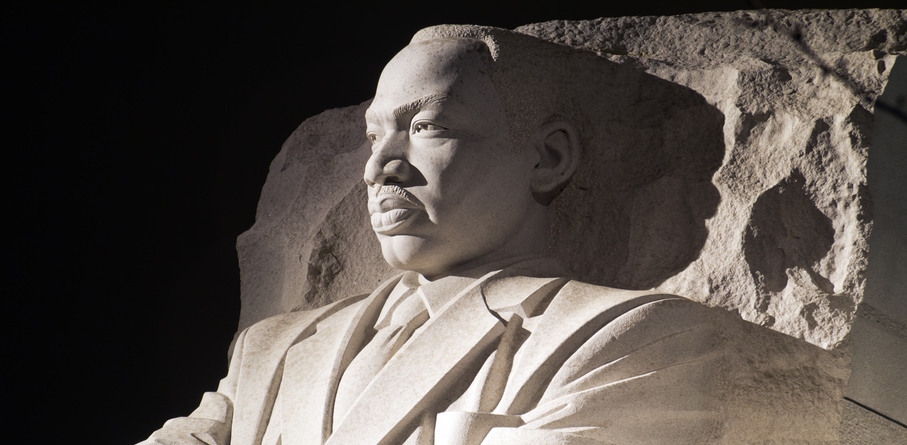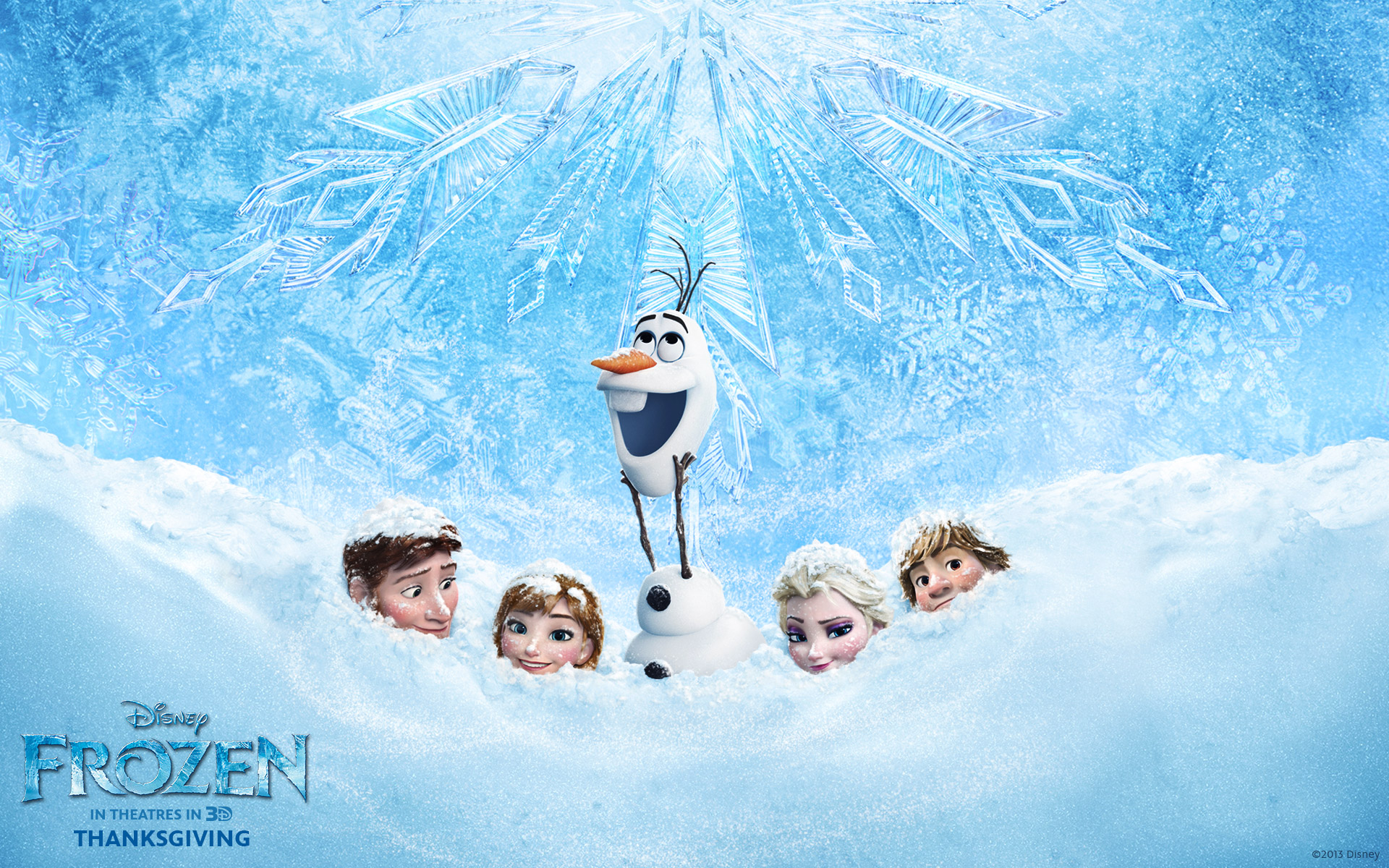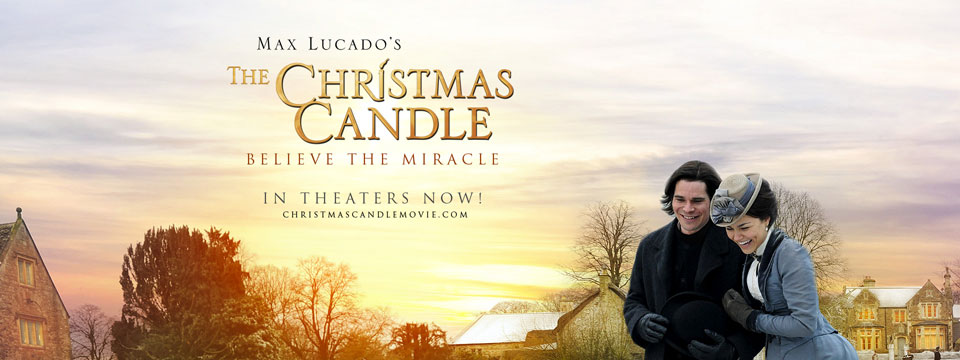
by Brian Hobbs | Jan 20, 2014
Today, the world honors and remembers one of the most famous pastors of all time, Dr. Martin Luther King, Jr. His efforts to create racial reconciliation in America and his “I Have a Dream” speech are known throughout the world and will surely be noted by countless generations to come.
Dr. King’s speeches and orations alone contributed greatly to American history. His commitment to nonviolence at a time when others were calling for armed revolt were exemplary. His pleas for justice move us even today.
While some issues have been made about his personal problems and reports of marital infidelity, all can mourn that his life was cut tragically short by the unjust hands of an assassin, leaving a permanent scar on this nation.
It is no accident that his birth name, Michael King, was changed to “Martin Luther,” the great Reformer, who like Dr. King, felt a call from God to right a wrong and stand on principle. The world was never the same after Dr. King came on the scene and showed just how powerful a man, armed only with convictions and moving words, can awaken a nation’s conscience and create unity among disunity, and replace injustice with justice.
This letter from a Birmingham jail further explains Dr. King’s cause.

by Brian Hobbs | Dec 30, 2013
The New Year is upon us, and that means most people will rededicate themselves to eating right and more exercise. While fitness trends come and go, according to the American College of Sports Medicine’s predictions for the top 20 fitness trends for 2014, there is one exercise routine that continues to grow in its popularity: yoga.
This brings up some important questions for Christians to consider.
How did yoga get here?
Drive down the street of a city in America, and you are likely to see a yoga studio, or a gym or even a church offering yoga classes. So how did yoga, which has its origins from the ancient Hindu religion more than 2,000 years ago in a place that is thousands of miles from Oklahoma, get here?
It is difficult to pinpoint through research when yoga came to the West, but it appears the practice came to America in the 19th and 20th Century from a man named Swami Vivekananda and that during the 1980s, it gained full recognition as an exercise in cutting-edge places like California. The “yoga boom,” as it is sometimes called, has really taken root and acceptance in the last five to 10 years.
Is it morally and spiritually neutral?
The very word “yoga” means “to yoke” or “to unite.” But with what are yoga practitioners uniting? In its full form, the purpose of yoga is a union with the gods of Hindu. Certainly, the average dude in a yoga class—let’s call him “Sam Fitness”—at the YMCA does not have this in mind.
Yet when Sam Fitness goes through the yoga routines, including the meditation and poses, he is unwittingly associating himself with the larger religion behind yoga. Even more problematic, while Biblical meditation is filling the mind with Scripture, yoga preaches the very opposite: an emptying of your mind, thus opening it to bad influences. Moreover the very poses of yoga, such as the “downward dog,” are themselves acts of prayer and are tied to Hindu meanings, whether we intend it that way or not.
There is no question that physical activity and sports affect our psyche. Can a young man play tackle football each week without it changing his temperament for aggression? Can a lady take ballet lessons day in and out without it making her a more graceful person? In Christianity, there is no separation between the body and the soul.
That is partly why sex, for example, is such a big deal. Posture affects how we feel and who we are, because God made us as a body-soul unity, in which we experience all of life. Therefore, if we do yoga, even modified versions, we become more like its creators.
Should Christians do yoga?
Many Christians have taken up the practice of yoga, believing that it is just an exercise or that they can separate the practice from its Hindu associations by avoiding or changing the meditation.
“I pray Christian prayers and recite Scripture while doing yoga,” said one Christian lady I know who takes part in a weekly class. While that may be true, the people around her do not necessarily know that. This particular Christian is not thinking beyond herself.
What about the weaker brother who is not as adept at discerning the difference? “All things are permissible, but not all things are beneficial,” said the Apostle Paul (1 Cor. 10:23). Just because you can, doesn’t mean you should.
Moreover, one of the blind spots of Christians today is to overestimate our own abilities to “eat the meat and spit out the bone,” when it comes to engaging with the culture. Wisdom calls us, not to see how close to the edge we can get without falling off the cliff, but not even to come close to the edge.
In the case of yoga, the cliff’s edge is just too dangerous. To quote Christian apologist Elliott Miller, “While an alarming number of American Christians suppose they can harmlessly achieve physical and spiritual well-being through a form of yoga divorced from its Eastern worldview, in reality attempts to Christianize Hinduism only Hinduize Christianity.”
Christians would do well to cast aside the yoga mat and find other, more suitable bodily exercises in the New Year and beyond.
For further reading on this, visit: http://www.equip.org/PDF/JAY001-1.pdf

by Brian Hobbs | Dec 23, 2013
Just in time for the holidays, the Disney juggernaut produced, Frozen, an animated movie that some are calling an instant classic.
A short plot summary goes like this: “Fearless optimist Anna teams up with Kristoff in an epic journey, encountering Everest-like conditions, and a hilarious snowman named Olaf in a race to find Anna’s sister Elsa, whose icy powers have trapped the kingdom in eternal winter.”
Many have already seen the movie, even more than once, yet I offer these thoughts to those who have yet to see it and those who already have.
Positive elements
Disney Princess cartoon are notorious for having problematic sub-themes. “The Little Mermaid,” for example, glorifies a scantily-clad rebellious daughter who wants “out of the house” and to be-bop around the real world with her boyfriend. In Frozen meanwhile, the princesses have respectful attitudes toward their parents and authority. Then princes, likewise, have an air of chivalry and propriety that is not often seen in Hollywood these days.
Most viewers will not read between the lines as much, and will simply enjoy the movie’s beautiful animation, catchy music, and rib-tickling humor, most of which comes from a talking snowman named “Olaf.” Be that as it may, parents of movie goers will be entertained as much as their children are, and pleased that the movie is relatively clean.
Negative elements
Within the plot, there is no foul language or overly scary scenes. If you are hyper-sensitive against men and women “falling in love” (though this does not happen in the usual Hollywood sense) and some kissing, this would not be the movie for you. Further, there are a couple references from the snowman that, if imitated by children, could make a bad habit.
Spiritual content
For Christians, we take a beating at the box office these days, with movies that make fun of, deride, or just blaspheme our Faith. None of this occurs in Frozen. With its theme of “true love,” the movie appeals to what is best in the ordinary person. The movie also extolls the virtue of family and sisterly love (“Sisters before misters” as someone said). While one of the characters has magical powers (obviously a make-believe magic), that character must learn to use it responsibly and with concern for others. Lastly, the movie portrays a concern for the poor and suffering that is uncommon today.
Overall
Only time will tell if Frozen ends up being the classic that some project. One thing is for certain: the movie’s warm characters (pardon the pun), noble theme, humor and well-done music will have families wanting to watch it again and again.
Rating: 3.5 of 4 stars
Photo credit: Disney

by Brian Hobbs | Dec 18, 2013
Point
[show_avatar email=12 user_link=authorpage show_name=true avatar_size=100]
It hit me like a bolt of lightning the other day when the store clerk wished me a “Merry Christmas!” In my lifetime, most retailers have switched to the phrase “Happy Holidays!” in order to be more inclusive of people of other faiths.
The change toward political correctness has been accompanied by others, including calling them “Holiday trees” instead of “Christmas trees.” The end result has heaped more fuel on the culture wars and created one more watchword to distinguish who is on what side.
The “Merry Christmas” debate has reached such heights that two Oklahoma lawmakers have even filed a bill that seeks to protect citizens’ right to say it in all settings. This begs the question, “What does it matter?”
Continue Reading
The Christians attending the Council of Nicea in 325 A.D. found out that words matter. The entire proceedings hinged, not on a single word, but on one part of one word. At this Council (which interestingly was attended by St. Nicholas of Myra, around whom the Santa Claus tradition formed) a major debate about the nature of Christ as expressed in a Greek term.
Is Christ of the same nature of God (i.e. “homoousious”) or is He only of similar nature (“homoiousios”)? The theology of the Faith literally hinged on an “iota,” and indeed it mattered more than one “iota.” The Council rightly interpreted that He is of the same nature as God and the Nicene Creed, which Christians around the world still use today, was eventually codified, and the heresy that denied the deity of Christ was defeated.
In Christianity, then and now, words matter. They have meaning for our theology and have affected our everyday lives. The British author George Orwell understood this. In the fictional nightmare vision of a totalitarian society in his book, 1984, the infamous “thought police” could control almost any behavior that would challenge the government. The tyrants in Orwell’s work, which were a foreshadowing of the Soviet Union’s government, had an even more powerful tool than the “thought police.” The Ministry of Truth created all words and created “doublespeak,” a system of made up words to control people’s minds.
Today, our culture is being eroded on a number of fronts, but isn’t it interesting that a major part of the culture war is the war on words? The English language has been changed and trampled upon so dramatically, that we can no longer say “Merry Christmas!” without it being a political statement.
As Christians, we know that Christ cares about what we say. He went so far to say, “For by your words you will be acquitted, and by your words you will be condemned,” (Matt. 12:27) in the context of our profession of faith in Christ alone.
Words by themselves, however, will not positively change the tide of our culture. We must speak wisely with our words and loudly with our actions. Yes, let’s keep “Merry Christmas” in our vocabulary, even as we care for the poor and widows and orphans, pray for our leaders, and keep ourselves unstained from the world (James 1:27).
In doing so, we will become even more like the One who came upon that first Christmas and brought salvation. He, after all, is the real reason for the season and was perfect in word and deed. He is the One who makes us want to say with all our heart, “Joy to the world!” and yes, “Merry Christmas!”
Counterpoint
[show_avatar email=52 user_link=authorpage show_name=true avatar_size=100]
It’s the time of year we all love. Twinkling lights adorn festive homes, Christmas hymns fill church sanctuaries and politically-charged posts light up social media like a well-decorated Christmas tree.
In a season when Christmas joy and holiday cheer should be dominant, many Christians continue to celebrate a not-so-jovial holiday tradition: mounting a full-blown, no-holds-barred counterattack against the so-called “war on Christmas.”
As angry members of the “Merry Christmas” police decry Christian persecution, we as believers lose both our credibility and our Christian witness and the plight of the truly persecuted church is diminished.
Continue Reading
Case in point: Recently a group of Oklahoma state representatives filed a bill that would legislate defenses for the Christian holiday season and protect religious expression in public schools. Hearing children use offensive terms such as “holiday decorations” and “holiday trees” sparked one representative’s passion for the legislation.
Within hours, a local news station’s Facebook post about the story garnered hundreds of comments, many from less-than-jolly Christians upset at the increasing level of “persecution” against Christmas in particular and believers in general.
Although political correctness runs amok in American society, we as believers should not drag ourselves down into this argument, which happens to distract from the true object of our faith: Christ Himself.
After all, Christmas isn’t about what you call a certain tree or which seasonal greeting you prefer; instead, it’s about celebrating the birth of Jesus. And at the end of the day, that’s a celebration that can neither be legislated nor forced.
Expecting Jews, Muslims, Buddhists, Hindus, atheists and any other religious or non-religious group to celebrate the birth of Jesus Christ is tantamount to hitting them over the head with a Bible. Even though “Merry Christmas” should always be the starting point of our holiday lexicon, we must not ridicule others when it is not part of theirs. Actions like that just add another log to the culture war fire and do little – if anything – to further the Kingdom of God. In fact, it could do just the opposite, damaging our Christian witness in the process.
“Happy Holidays” is not Christian persecution, especially when compared to the situations of our brothers and sisters around the world. Just recently North Korea executed 80 people, some simply for possessing a Bible. In November, Muslim extremists killed dozens of Christians in Nigeria. And in Nepal, a prayer warrior and church elder was brutally murdered by a man for whom he had been led to pray.
So this Christmas, instead of funneling our energy and attention on that store clerk who wishes us “Happy Holidays,” let’s pray for our brothers and sisters around the world who are truly persecuted. And with that, may we be reminded of the Child in Bethlehem who was born to die for us.

by Brian Hobbs | Nov 29, 2013
On the same weekend that most people went to see “Hunger Games 2,” we opted to see the new holiday drama, “The Christmas Candle.” Here’s what you most need to know about this movie, which is based on the book by Christian writer Max Lucado (who makes a cameo).
Plot summary
“Deep in the heart of the English countryside lies the enchanting village of Gladbury. Legend has it, every 25 years an angel visits the village candlemaker and touches a single candle. Whoever lights this candle receives a miracle on Christmas Eve. But in 1890, at the dawn of the electric age, this centuries old legend may come to an end.
“When David Richmond (Hans Matheson), a progressive young minister, arrives in Gladbury, the villagers discover a new formula for miracles: good deeds and acts of kindness. While David’s quest to modernize Gladbury sets him at odds with the old world candlemaker, he finds an unlikely ally in the lovely skeptic, Emily Barstow (Samantha Barks). Now, the fiery candlemaker must fight to preserve the legacy of the Christmas Candle. But when the candle goes missing, the miraculous and human collide in the most astonishing Christmas the village of Gladbury has ever seen.” (Note: Plot excerpted from the movie’s website: www.thechristmascandlemovie.com)
Positive Elements
If you go into this movie expecting yet-another Hallmark-style holiday film, you will walk away pleased and impressed. The movie’s acting, for example, is far better in quality than Hallmark, and its religious ideals are decidedly more Christian (though, as I will bring up later, not necessarily theologically air-tight).
The movie’s main characters, despite portraying people from more than 100 years ago in England, were easy to identify with. The film has no foul language and the music is exceptional. Also, there is a budding romance that touches the heart.
The movie also provides a debut platform from singer Susan Boyle. Ms. Boyle, who became an overnight success after appearing on “Britain’s Got Talent” (their version of “American Idol”), also shows an ability to act, as well as the expected excellent vocals.
Negative Elements
For some of the youngest viewers, families will need to talk about out-of-wedlock births (which is contained in the plot, though portrayed as a bad thing).
Spiritual Content
One of the main themes running throughout the movie, as it is with much of life, is suffering and miracles. Should Christians expect prayers to be answered their way (or God’s way)? Should we pray for healing and expect miracles? These questions are dealt with in the movie, and within the fictional plot, conclusions are made.
Without spoiling the plot, there is a portrayal of angelophanies (i.e. appearances). Speaking of which, the role of angels within the movie more closely resembles a “Touched-by-An-Angel” Roma Downey one than what you see in actual Scripture.
The movie also explores the tension between faith and good works, and it shows the futility of working our way to heaven.
Overall
If you are looking for a good Christmas movie for the whole family, “The Christmas Candle,” could be a good choice. While this fictional tale is sure to warm hearts this Christmas, it probably won’t change the box-office landscape or the moral landscape of the country at the same time. Nevertheless, I am glad they made the movie in time for Christmas.
Rating: 2.5 stars (out of 4)




